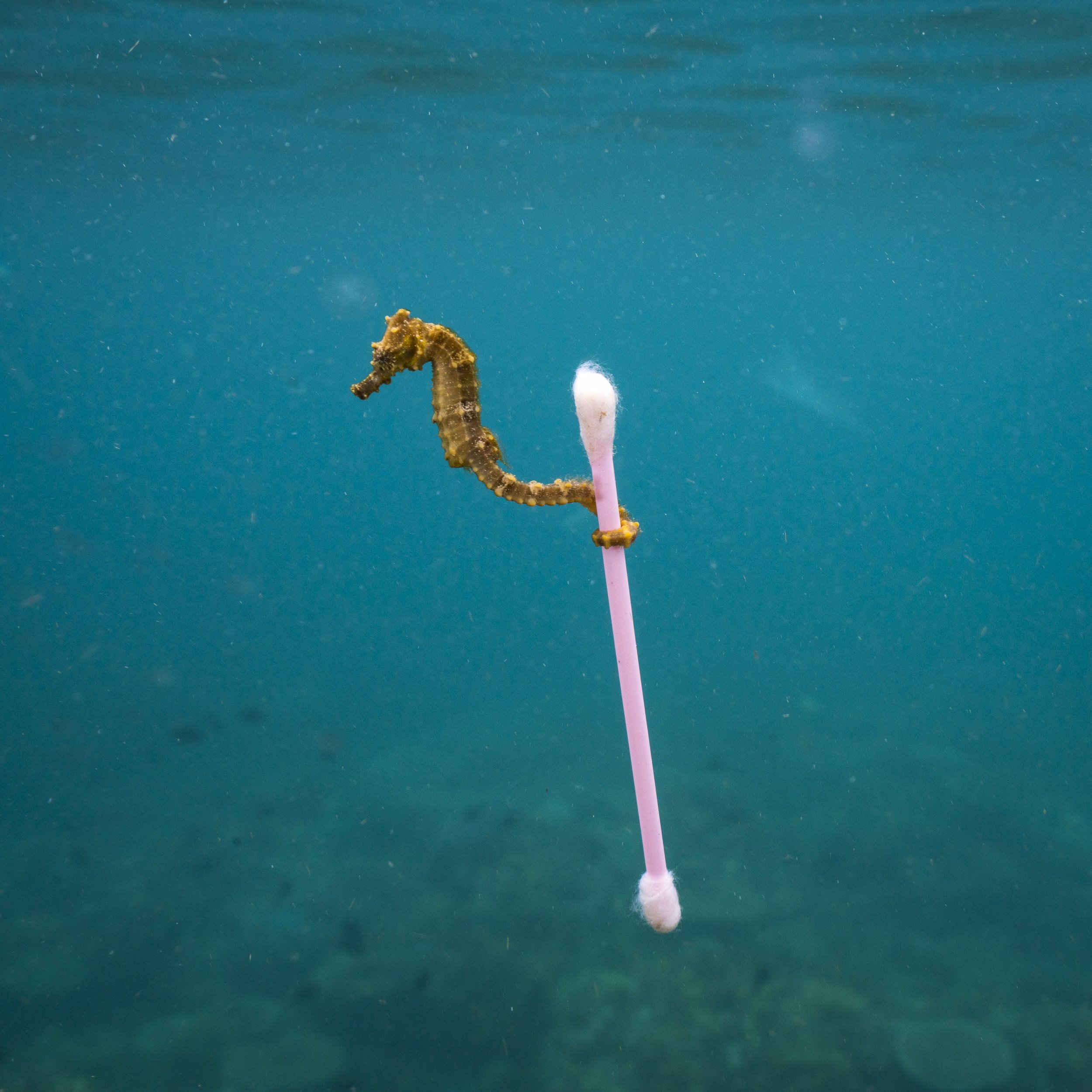
Wildlife photographer Justin Hofman was visiting Sumbawa—an island in the middle of the Lesser Sunda Indonesian island chain—on a group snorkeling expedition last November when he spotted a seahorse making its way through the waters.
"The tide was changing and the seahorse must have been right on the edge of this tideline," he tells Newsweek. "And as we were out there more and more all of this junk started to come to through."
At first there was natural stuff—seagrass, little pieces of wood—but then the man-made detritus started to float by. Hofman spotted small pieces of plastic and then bigger pieces of plastic. Finally, there was raw sewage.
Indonesian currents are infamously strong, so the garbage could have come from a nearby town or even have been brought in with the tide from 5,000 miles away. And because plastics don't break down, it's possible the garbage has been floating around in the waters for years.
He snapped a bunch of photos with his Sony camera, though not as many as he'd usually take. Hofman was eager to get away from the scene because by then "the water started to smell like shit."
Among the photos he managed to get was one of a seahorse clasped around a cotton swab, which he recently posted on Instagram. The image is a finalist for the 53rd annual Wildlife Photographer of the Year Award; the winner will be announced on October 17.
"My blood was boiling," he adds. "It was so frustrating and upsetting to watch this thing unfold from something very cute and enjoyable to really sad."
Hofman, who has been involved in nature expeditions for nine years, is sorry to say he's seen a lot worse. He recently took a trip to the Arctic and watched as polar bears ate plastic bags, feeling powerless.
All the alarming statistics on what we humans do with our non-biodegradable landfill makes these scenes less than surprising. According to the Natural Resources Defense Council, humans dump as much as 14 million tons of plastic into the ocean each year. According to the website, nine million tons of plastic is the equivalent of 136 billion plastic milk jugs. The NRDC suggests that's enough plastic to reach halfway to Mars.
Hofman, who has taken trips and led them for EYOS Expeditions on every continent in the world, takes the photos to help the cause. "I just hope people consider how they consume plastics and how much waste they produce, and what becomes of that waste," he says.
Uncommon Knowledge
Newsweek is committed to challenging conventional wisdom and finding connections in the search for common ground.
Newsweek is committed to challenging conventional wisdom and finding connections in the search for common ground.
About the writer
Jessica Firger is a staff writer at Newsweek, where she covers all things health. She previously worked as a health editor ... Read more
To read how Newsweek uses AI as a newsroom tool, Click here.








